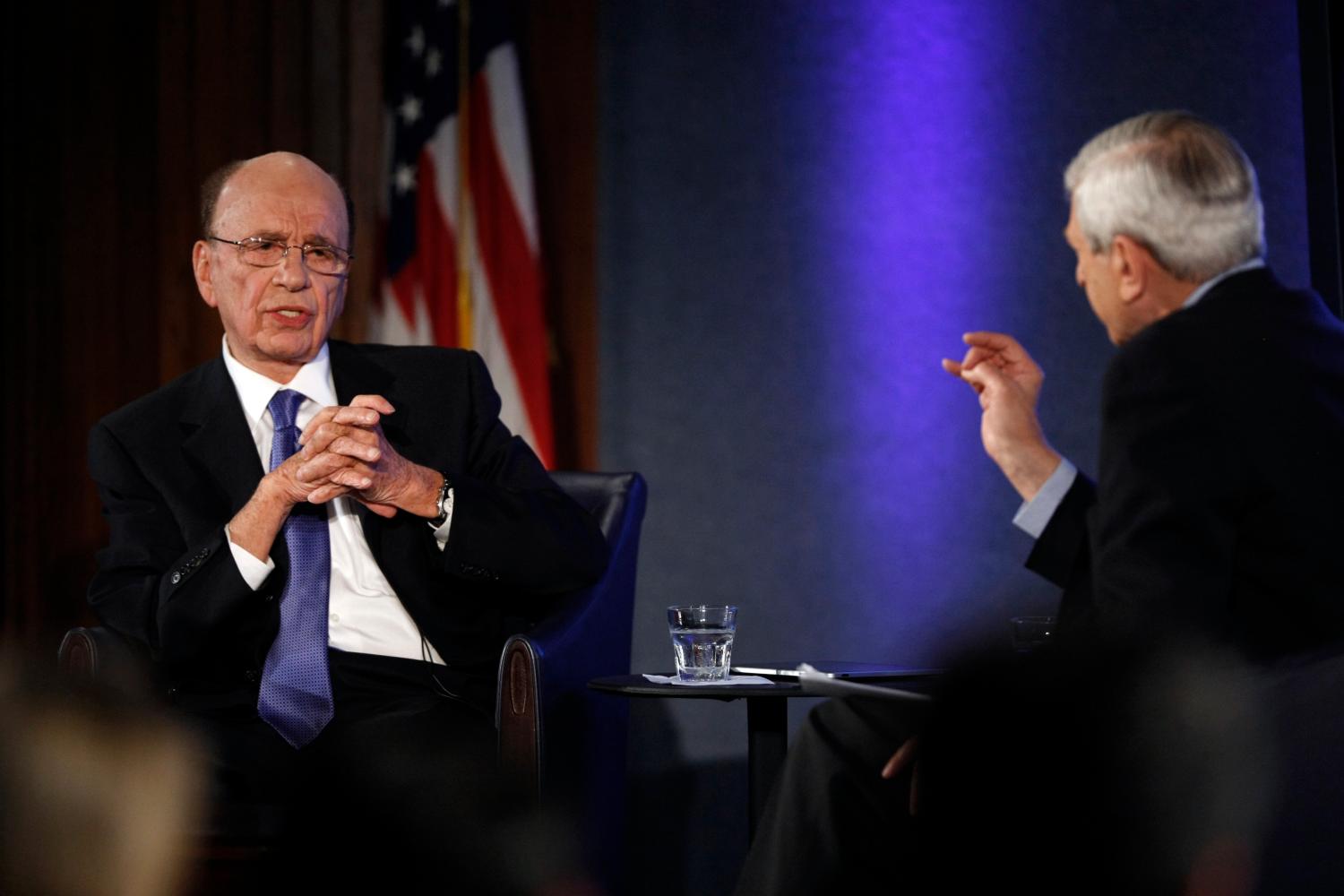Often it has been said that it takes but a single pair of eyes to see the sparrow’s fall and, seeing the fall, go one step further and raise a question: why in God’s name is the United States creating a confrontation with China?
Hold on, Mr. Kalb. Not so, I hear you say; the United States is merely responding to aggressive moves and actions by China. Haven’t you noticed the buildup of the Chinese navy, in fact the whole Chinese military; their outright claims to the South China Sea; their economic foothold in Africa, spreading by the day; the growing Chinese presence in Afghanistan; the closer Chinese ties to Iran, and much more? All true, and yet none of these actions or moves can sensibly be considered, at least at this stage, to be a direct threat to America’s vital national interests, and all can be seen as logical extensions of China’s impressive transformation in the past few decades from an economic invalid to an economic powerhouse.
If you listen to official Washington—and not just the politicians on the right and left—but also the think tank analysts and media, you might well conclude that China has replaced the old Soviet Union as the bulky, powerful adversary challenging America’s central place in the world—even, if unchecked, posing a mortal threat to American national interests. History cries out against such an interpretation of Chinese policy.
Have you tuned in lately to any of the Republican presidential debates? Again and again, China is portrayed as a hostile, aggressive, conniving country intent on undercutting the American economy, stealing American jobs, challenging American allies, such as Taiwan, South Korea and Japan, and, equally important, robbing America of its rightful place in Asia and the Pacific. In fact, China is right up there with Iran and North Korea as agents of troublemaking mischief.
This image of China, by the way, is not a GOP monopoly. Tune in to the Obama White House, where apparently anti-Chinese rhetoric scores a few political points: the new military strategy, announced by the president last week, is said to refocus American strategy from a preoccupation with Europe and NATO to a new emphasis on Asia and the Pacific, almost as though the Yankee clipper ships of the early 19th century did not already suggest a strong American interest in Asia and the Pacific. Why this refocus? Because of the rising Chinese threat, of course, it is emphasized. The United States recently deployed a Marine unit to the northern rim of Australia, a small unit but proclaimed loudly so Beijing could hear American power on the move. Why? Obviously, as a warning signal to China to cool it, we’re told. The administration is even thinking about recreating a new Southeast Asia Treaty Organization, known in the old days of the Cold War as a bulwark against the expansion of communism in Vietnam and elsewhere in Southeast Asia. Why would another SEATO be necessary? Again, China.
There is little in Chinese history to suggest that China is now on a war path, or intent on positioning itself for a 15-round fight with America for control of the Pacific. Maybe, one day, a new generation of Chinese leaders will rewrite their political play book and plunge into a radically changed policy of confrontation with the West. Unlikely, but maybe. In the meantime, let us not construct an enemy where none may exist. China, at its zenith, considered itself the Middle Kingdom—the rest of the world seen as a series of concentric circles of nations and peoples of diminishing power and influence. The closer the nation, the more interest China showed. The further away, the less interest. It was always a delicate balance of interest and need.
The United States does not need a new enemy; it has many challenges that are real and immediate. China may continue to be a diplomatic nuisance and a trading bully, but it is not a mortal threat to America—it is not a new Soviet Union. If President Obama fancies himself to be a realist in foreign affairs, he ought to stop thinking of China as a potential enemy. There is no reason for confrontation with Beijing and every reason for an imaginative policy of cooperation.
In December, 1960, a young CBS reporter suggested to Edward R. Murrow that the United States should feed the people of China, then experiencing a famine, rather than tighten its military containment of China. The idea was rejected by the U.S. government, which saw China as an enemy in the Cold War. Today, there is no Cold War and no need for any administration, Democratic or Republican, to look at China and see an enemy. A problem, yes, but an enemy, no.
The Brookings Institution is committed to quality, independence, and impact.
We are supported by a diverse array of funders. In line with our values and policies, each Brookings publication represents the sole views of its author(s).




Commentary
China Is not the Soviet Union
January 10, 2012